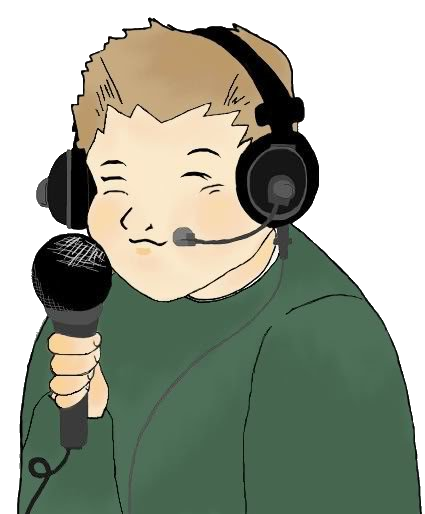 |
 |
 |
 |
 |
 |
#169 - Time Machine: The First Format
History + The Price Is Right - Fun + John
Davidson = Change in 5 weeks.
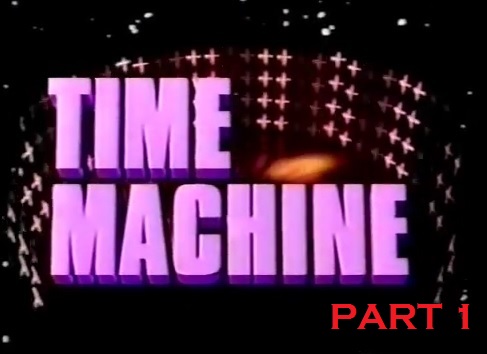
NBC (January - February 1985)
Two of the biggest shows on daytime TV in 1985 were Sale of the Century and Scrabble. Both of these shows were produced by Aussie producer extraordinaire, Reg Grundy. Reg Grundy and his production company had tons of hits in Australia and his version of Sale of the Century revitalized a franchise when it debuted in 1980 on Channel 9 in Australia. When Sale debuted in 1983, it helped revitalize a lethargic NBC Daytime with his big money philosophy, mixed with the Reagan-driven culture of more money = more happiness. In 1984, Scrabble made it's debut. While the show wasn't the big budget blockbuster that Sale was, this was a fun, light-hearted game that drew in millions because of how loose and fun it was. So, with 1985 coming up, Reg Grundy pitched a new show to Brandon Tartikoff with the aspiration about making history fun. The show would wind up one of the networks biggest failures in daytime for the 80s. Let's go back and hop into the Time Machine.
Now, as indicated by the picture and the title, this is a two part induction. There were format changes made to the show mid-stream of its run, so we'll cover all of those in the second part in a couple of weeks. So here is the first format and the beginnings of the show.
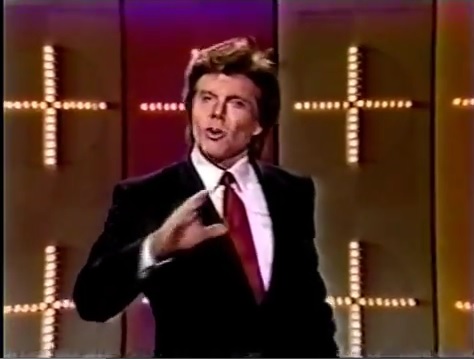
The host was former "That's Incredible!" host and actor, singer John Davidson. Many remember him for his work on Hollywood Squares. While he was decent enough on Hollywood Squares, his other hosting outings has him way out of his depth. He's better off with a light-hearted affair, such as what Hollywood Squares was. Here, he's spotty at best. While he's ok on some games, he isn't as fluid there as he is with others. One of my other biggest complaints about John Davidson is that he also comes off as a fake game show host, much like the ones that you'll see portrayed on sitcoms or dramas. I'll have to re-watch some more $100,000 Pyramid with him as host to see how he devolved from a rookie host, to someone competent to just plain embarrassing to watch.
The first format of the show, used for the first five weeks had three contestants come out one at a time and play a different game. After each of them played a game, they would compete in the Time Capsule Round where a winner was determined and they played a bonus game for a jackpot of prizes. It sounds easy enough, but what games were they? Well, the first format had 6 at their disposal, so let's get to it.
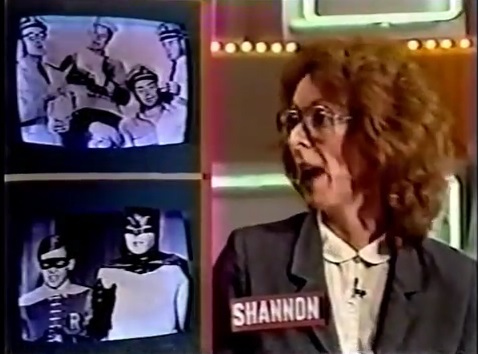
The first game shown was the Tube Game. In this game, a contestant was given a year and two TV shows from a particular network, one aired on said network during that year. If the contestant guesses the right, then the networks logo lights up and they "claim" that network. After all three networks are played, the prize package is revealed underneath one of the networks. If successful, they get the prize package put into their "prize bank". I'll explain the prize bank once we get to it. This plays a lot like Bonus Game from The Price Is Right to the point where you could legitimately claim that it is a rip-off of Bonus Game. To be honest, this may have been one of their better games for this first part of the show's run.
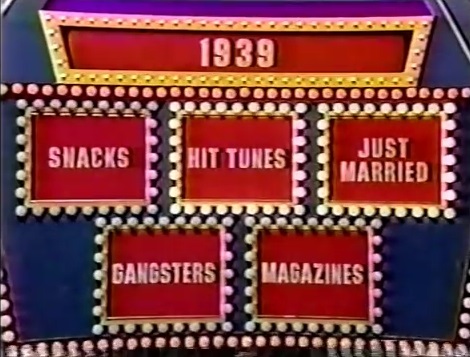
Next up is The Main Event. In this game, a contestant is given a year and five categories. They get to pick a category for free and it's corresponding clue and has to earn the other four clues by answering either/or questions associated with the categories left. If correct, they get that clue. If not, then that category goes away.
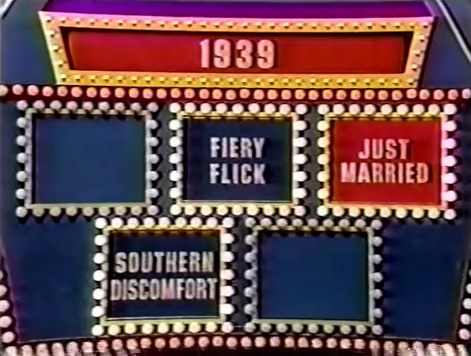
After the questions are asked, the contestant picks one clue. If they can guess the event that happened on the first clue, they win $5,000 into their prize bank. For each additional clue, $1,000 is deducted from the grand prize. If unsuccessful, they win nothing. This is actually their best game. It's something completely original and it's more cerebral than what else the show had to offer.
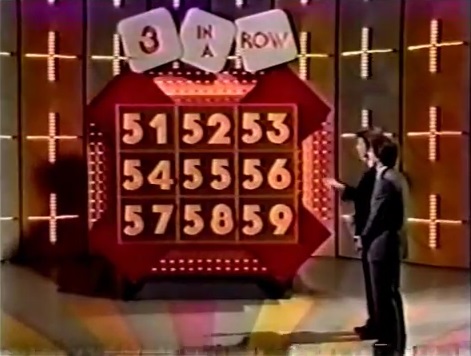
We then get to one of the most commonly played games in 3 In A Row. This one had two versions, all involving a 3x3 grid of years in a decade, such as 51-59.
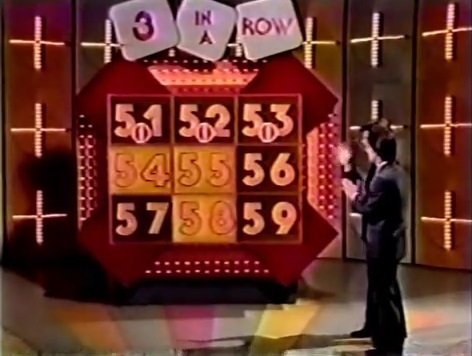
The first version had a contestant try to get either 3 across or down or diagonally. If they get 3 across or down, they get a prize in their prize bank. If it's diagonally, it's a car or some five-figure prize in their prize bank. However they have to place 3 "Poison" cards, even though they are shaped like the signs the Villains held on Whew! during the front game. Charlie Tuna reads a list of events that happened in a decade and then the contestant will pick an event that will be on a diagonal or on a safe line. The game ends if they complete a line across or vertically or diagonally without lighting up all 3 poison spots. This smacks a lot of the typical Barry/Enright fare of the 70s and 80s in the "accomplish x before villain y beats you" style of game. At least you got to choose your fate.
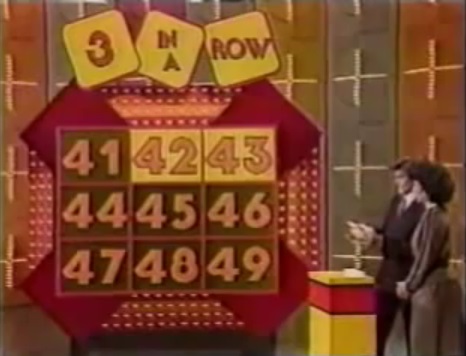
The second version didn't have the choosing of your fate because not a couple weeks after its debut, the game changed to where you had to get a horizontal or vertical 3 in a row before you lit up a diagonal. Also instead of a list read off by Charlie Tuna, and you picking one, two events are selected at random by the contestant via 9 slips of paper put in front of them. After one is picked, another one takes it place. This makes the game more reliant on luck rather than the first format where you laid out your own destiny.
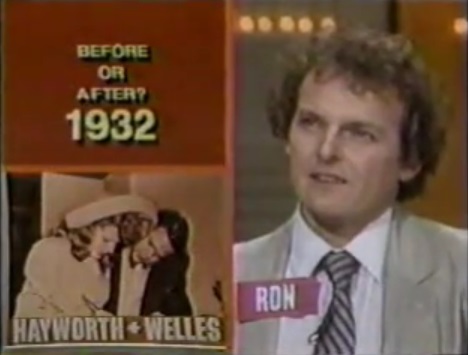
Before Or After is next up and it's played for up to $3,200 for the Prize Bank. A contestant is given a base year, $200 to start, and 3 historical events. Each correct answer doubles the $200 up to $1,600 if they get all 3. After that, they are given a choice. Keep the money or risk it on one more for double the money to add to their prize bank. This one is just plain boring. It reminds me more of the question segment of You Bet Your Life, which was the weakest part of the show. There is no excitement here.
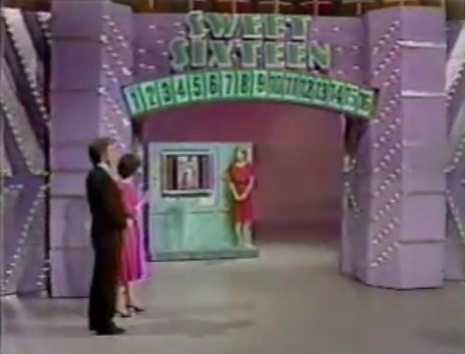
Sweet Sixteen is next and if you've seen Lucky $even on The Price Is Right, you've seen Sweet Sixteen. A contestant is given $1,600. They have to correctly identify what year four items were released to the general public. They are given the decade that the item was released in. For each year they are off, they lose $100. The game ends when the $1,600 is spent or if all four items are used, therefore the contestant gets to keep whatever money is left & a prize package is added to their prize bank. I would like this game more, if it wasn't a complete rip-off of Lucky $even. It was at least fair, but still painfully derivative.
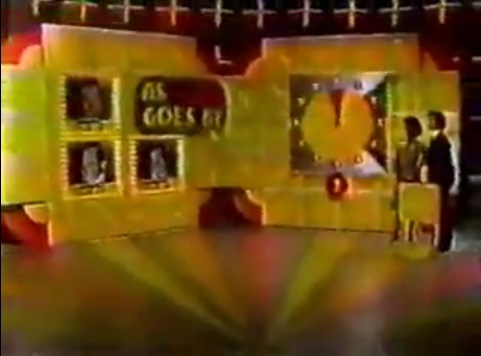
The last game used is As Time Goes By. The object of this game is to get the clock's minute hand to get in the 12-zone in order to win a prize to add to their prize bank. The contestant is given 1 free spin and the opportunity to earn 3 more by guessing what year a photo of a famous celebrity was taken within five years. After all three have been exhausted, they have to stop the spinning clock inside the 12-zone. Doing that wins the prize. This reminds me of those pricing games on the Price Is Right where you can do everything right, yet still lose. As Time Goes By reminds me of Joker, 5 Price Tags, those games. You fall victim to a terrible game mechanic that is too reliant on dumb luck.
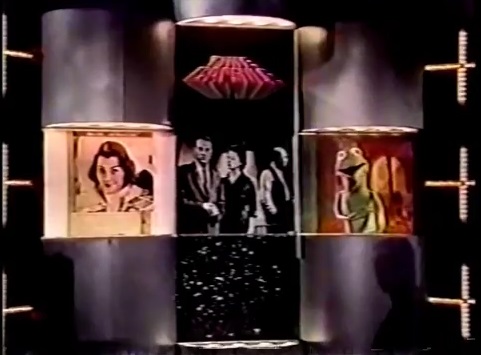
After three games are played, all three contestants play Time Capsule. Here, John Davidson lists off four events that happened in a year and a #1 hit song from that year. After all of that is listed off, the contestants guess what year is being talked about. The contestant closest to the correct year is the winner and they get what they earned in their prize bank whereas the loser gets parting gifts. If they get it exactly right, they win a cash jackpot that starts at $1,000 and grows by $1,000 each day it's not won (note, this would be added to the prize jackpot in the bonus game after the 2nd bonus game was introduced). And here's why I hate the Prize Bank idea. if you've won your game, you should be able to keep it, not jump through another hoop where some ditz who blew their game wins with nothing and could stink it up in the bonus round. It's a flawed format mechanic that was thankfully dropped when they switched the format.
Now the bonus game, which was played for a jackpot of prizes. This one had two formats.
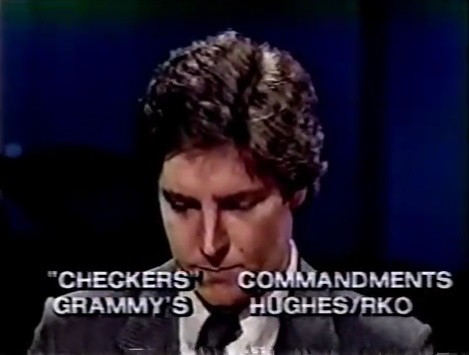
The first bonus game was given four historical items. The champion had to guess which one belonged in a given year. If they guess it correctly, they win the prize package. For a big prize package at the end, it kinda seems anti-climatic. One question with hardly any build just comes off as hollow to a big payday. If this was for a car or something worth half that, I can see it, but not for something that is worth over $20,000 in 1985.
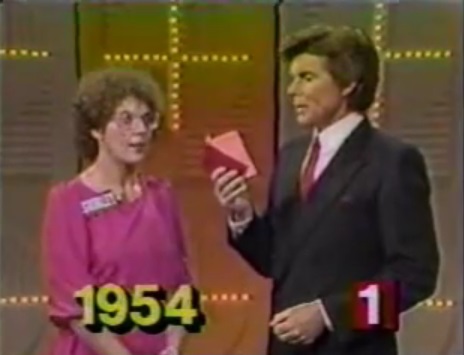
The second bonus round is played as follows. The champion is given a base year and has to guess if a headline appeared before or after the given year. If they get 4 right, they win the jackpot which is $20,000 in prizes + a cash jackpot which starts at $1,000 and goes up by $1,000 each time not won. This is a better end game. At least there's a challenge. There is also an incentive for returning champions. If they retain by winning another Time Capsule, they only have to answer 3, then 2, then 1 and then are given the prize package and cash jackpot if they win 5. it builds up suspense that way to see if someone can go the distance.
This is only part one that was the 16 week voyage that was Time Machine. To sum up this format in just one sentence it's this: It's Price Is Right, but with a history element, executed about as effectively as Emeril Lagasse's Sitcom. John Davidson was green as a game show host, and he felt really disjointed and having to force humor into a boring Price Is Right knockoff didn't help matters either. If they had more entertaining games that didn't play like they were direct lifts from The Price Is Right, then it would have looked and felt better, but this was just one big misstep.
Reg Grundy got the hint really quick, and tried to fix the format after five weeks of this. How would that fare? You'll have to check back in two weeks to see how the new format would fare.
Have any questions about the site? Submit them to us via our Facebook page, our Twitter, and through e-mail. We'll be sure to answer them to the very best of our ability.
(c) 2009-2017 - A CQS Production.
